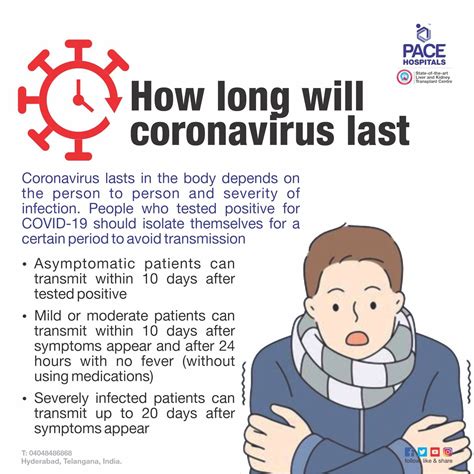How Long Does It Take To Get Over COVID-19? A Comprehensive Guide
COVID-19, caused by the SARS-CoV-2 virus, affects individuals differently. While some experience mild symptoms and recover quickly, others face a prolonged and challenging recovery process. Understanding the timeline for recovery is crucial for managing expectations and seeking appropriate support. This guide explores the various aspects of COVID-19 recovery, helping you understand what to expect.
Understanding the Stages of COVID-19 Recovery
The recovery period from COVID-19 isn't a simple, linear process. It can be broken down into several stages, each with its own timeline and potential challenges:
Acute Phase: (Days 1-14)
This is the initial stage marked by the onset of symptoms. The duration and severity vary greatly. Symptoms can include:
- Mild: Cough, fever, fatigue, headache, loss of taste or smell.
- Moderate: Shortness of breath, chest pain, confusion.
- Severe: Difficulty breathing, organ failure requiring hospitalization.
The length of the acute phase depends heavily on the severity of your illness. Mild cases might see symptom resolution within a week or two, while severe cases may require weeks of hospitalization.
Recovery Phase: (Weeks 2-8)
Even after the acute phase subsides, many experience lingering effects often referred to as "long COVID" or Post-COVID-19 Condition. During this phase, you might experience:
- Fatigue: Persistent tiredness and exhaustion. This is a very common long-hauler symptom.
- Brain Fog: Difficulty concentrating, memory problems, and confusion.
- Shortness of breath: Difficulty breathing even with minimal exertion.
- Muscle aches and pains: Persistent body aches.
- Loss of taste or smell: These sensory changes can persist for weeks or even months.
The recovery phase can last several weeks, and complete recovery from all symptoms can take significantly longer for some individuals.
Post-COVID-19 Condition (Long COVID): (Weeks 8+)
For some individuals, symptoms persist for months or even longer, a condition known as Long COVID. The symptoms can be debilitating and significantly impact quality of life. These symptoms are highly variable and can include:
- Chronic fatigue: Severe and persistent exhaustion.
- Neurological problems: Headaches, dizziness, brain fog, and sleep disturbances.
- Cardiovascular issues: Chest pain, palpitations, and shortness of breath.
- Respiratory problems: Persistent cough and shortness of breath.
- Gastrointestinal issues: Diarrhea, abdominal pain, and nausea.
There's currently no one-size-fits-all answer for how long Long COVID lasts. Some individuals see improvements within weeks or months, while others experience lingering symptoms for much longer.
Factors Affecting Recovery Time
Several factors can influence how long it takes to recover from COVID-19:
- Severity of initial infection: More severe cases generally take longer to recover from.
- Pre-existing health conditions: Individuals with underlying health issues like heart disease, diabetes, or lung conditions may experience longer recovery times.
- Age: Older adults tend to have a slower recovery compared to younger individuals.
- Access to healthcare: Timely and appropriate medical care can significantly impact recovery.
- Lifestyle factors: Good nutrition, adequate rest, and stress management can aid in recovery.
When to Seek Medical Attention
While many recover from COVID-19 at home, it's crucial to seek medical attention if you experience:
- Difficulty breathing: This is a serious symptom requiring immediate medical care.
- Persistent chest pain: Chest pain warrants immediate medical evaluation.
- Confusion or decreased alertness: Changes in mental status require prompt medical attention.
- Bluish lips or face: This indicates low oxygen levels and needs immediate medical care.
Disclaimer: This information is for general knowledge and does not constitute medical advice. Always consult with a healthcare professional for any health concerns or before making any decisions related to your health or treatment. They can provide personalized guidance based on your individual circumstances and health status.
